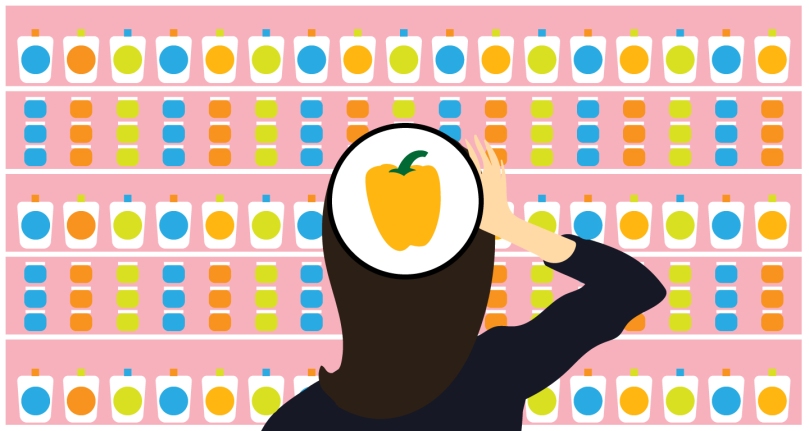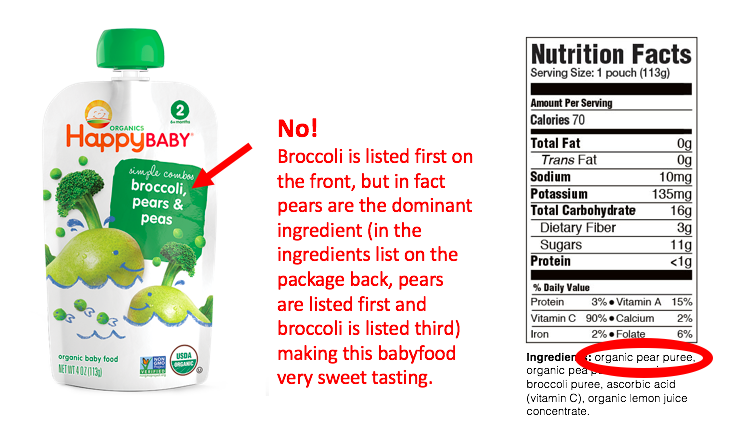
While the grocery store shelves are packed with an endless assortment of baby food flavors, research suggests some are better than others in helping to develop your baby’s palate.
All children are predisposed to like sweet foods and dislike bitter tasting vegetables, but their taste preferences can be shaped before the age of 18 months. Because of this, it’s important that a child’s first foods are primarily vegetables. Vegetable flavors should also be introduced in rotation to provide familiarity.
Following this logic, here are three specific tips for helping to select which prepared baby foods will lead to your child becoming a more adventurous eater:
- Avoid baby foods that are 100% fruit or have fruit as the lead ingredient. Fruits are an important compliment for nutrition purposes, but they are naturally sweet and easily liked by children so they can be introduced later in your child’s palate development. During the early part of the weaning process concentrate on vegetables and avoid baby foods that are exclusively fruit.

- Choose baby foods that have a vegetable listed as the first ingredient on the back. Don’t fall for just looking at the images or ingredients listed on the package front, which can be misleading. Check the ingredients list and focus on the one’s have a vegetable listed first. This means that that ingredient is the dominant ingredient (by weight) in the baby food. Many baby foods will have a fruit listed second (to add sweetness), but at least your baby will experience some flavor notes from that predominant vegetable.

- Limit baby foods which list vegetables from the sweet flavor category (i.e. sweet potatoes, butternut squash, carrots, corn and pumpkin) as the dominant ingredient. While it’s important for children to learn to like sweet tasting vegetables as part of a healthy diet, it’s also important to remember that introducing a variety of flavor profiles (bitter, earthy, buttery, etc.) such as broccoli, green beans, peas and kale is essential in developing your child’s palate.

Science has proven that early flavor learning in children is critical to developing life-long flavor preferences and dietary habits. The key to practicing early flavor learning is variety in rotation: introducing flavors from different flavor categories and reintroducing them again 3-4 days later, being careful to introduce vegetables first and foremost. In selecting baby foods from your grocer, avoid 100% fruit, look for those that have a vegetable listed as the first ingredient and take care to choose a variety of vegetable flavors.